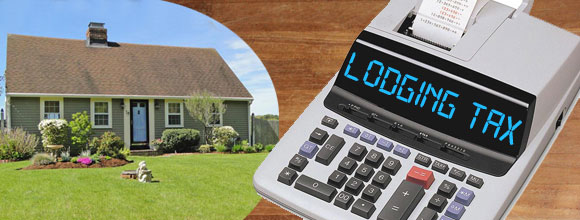We have been waiting for weeks for the Joint Committee to release the lodging tax bill, and we are now down to the wire. There are only four days before the end of the legislative session, so this is all going to happen very quickly. Thus it is urgent that you voice your opinion to Governor Baker even before knowing the details of the bill.
The Governor will have three options: 1) Sign the bill as it is written; 2) Veto the bill (not likely, according to our sources; or 3) Suggest amendments to the bill and send it back to the legislature.
Assuming that Governor Baker will suggest amendments, we strongly urge you to write to the Governor with any suggestions for amendments. Comments about the unfairness of the tax or trying to convince the government not to impose the tax at all will likely to fall on deaf ears. Suggestions for mitigating the negative effects of the tax will be the most helpful.
Below are several points we have made before during our discussions of the tax. Feel free to include any of these points in your letter to the Governor. Use this link to contact him: https://www.mass.gov/forms/email-the-governors-office.
Consider a tax rate of less than 11.7% (combined state and local tax).
The average annual rent increase for Cape and Islands vacation homes is 2%. A nearly 12% increase in rent is unrealistic and would force homeowners to absorb the tax. The foundation of many homeowners’ rental business is having repeat tenants, and a 12% increase can be extremely disruptive and result in the loss of these vacationers.
Rental homeowners already pay a lot more in tax per bedroom to the town than a hotel/motel. Homeowners pay based on property values, while hotel/motels pay based on net income, which is much lower.
This tax could ultimately harm the tourism market, which in turn could bring down overall real estate values.
Don’t put private vacation rental homeowners in the same bucket as investors.
The tax was initially aimed at big investors who are buying up buildings and renting them out as short-term rental units, thus removing them from the potential inventory of affordable housing. On the Cape and Islands, 94% of rental homeowners rent out just one home. There are the needs of Boston (and other cities) to prevent illegal housing and ensure safety standards as well as the needs of hotels who lobby for them. Then there are the needs of areas like the Cape and Islands that fully depend on the tourism community.
Many Cape and Islands homeowners struggle economically due to the very seasonal nature of business here. Most are renting their homes, not out of a desire to enter the hospitality business or make a killing, but out of a clear need to pay their bills and keep their homes even through the long winter months when there is no income but continuing huge expenses.
Exempt homeowners who rent out their primary home.
Some homeowners move out of their primary home in the summer and rent it in order to pay the mortgage and taxes. This is not easy, and an added tax would make this situation even more difficult for them.








Hi Joan,
Thank you very much for your e-mail.
I sent the following comments to the Governor’s office. Should I send my comments somewhere else or better not?
Best,
Julia.
“I had been renting short-term for 7 years.
Who are our tenants? They are big families with children and grandchildren, parents and grandparents. Children and adults enjoyed swimming, kayaking and fishing in our pond. They had great vacation.
Families bring their pets: dogs, cats and other animals. Hotels mostly do not accept pets.
People enjoyed family reunions in our house. They arranged barbeque and had nice time together.
Most of our tenants could not afford to stay in hotels. If they need to pay a lodging tax they might not be able to rent.
We meet our tenants as friends. We always place fresh flowers and arrange welcoming tea/coffee table. Some of our guests are coming year after year and we give them discount.
I had never used a rental dollar for my personal needs. All rental money had been spent to pay mortgage, improve and repair the house. I cleaned rooms, made beds and took care of the garden myself. It was hard work, but I liked to accommodate people. Our rental period is pretty short. With lodging tax that we have to absorb I will probably not be able to pay all my bills.
Hopefully we will not be put in the same bucket as big investors.”
Sincerely yours,
Julia Plotnikov